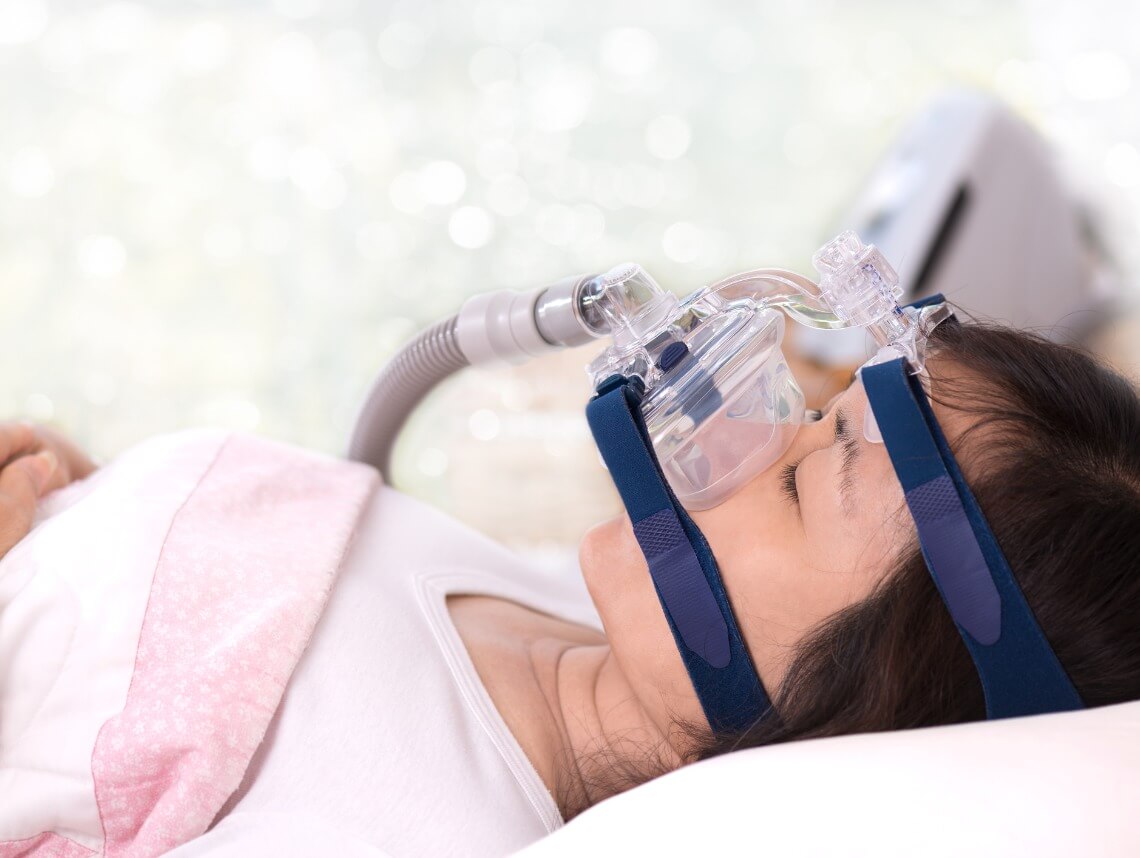One of the most important things a person can do on a regular basis to be well-rested and alert is to get a good night’s sleep. Yet, in many instances, it can be easier said than done. Small children, insomnia, stress at work, and financial worries can all play a role in keeping you up at night. But, what if the reason you’re not sleeping is due to a respiratory condition? Is there anything you can do to ensure you’re breathing well through the night? This is where CPAP therapy can help.
What is CPAP Therapy?
CPAP therapy is one of several types of sleep therapy machines. The acronym stands for Continuous Positive Airway Pressure. The machine includes a face mask, an air filter, and a humidifier. You place a mask over your face, covering your nose, and the mask sends a constant flow of air pressure to your airways.
CPAP machines are very quiet — after all, they are designed to help you sleep better — and also come in portable options for easy transportation.
Who can benefit from CPAP Therapy?
CPAP is a helpful type of therapy for people with mild to moderate obstructive sleep apnea who can generally breathe well on their own. An important factor to keep in mind is that since sleep is such an integral part of your overall wellbeing, treating sleep apnea is crucial to prevent health complications, such as:
- High blood pressure
- Metabolic syndrome
- Fatigue
- Coronary artery disease
- Congestive heart failure
The reason why sleep apnea could lead to so many health issues is that when a person’s breathing is interrupted on a regular basis, it causes a change in blood pressure, reducing blood oxygen levels. As a result, the heart works harder. Sleep apnea can also cause insulin resistance, increasing the likelihood of developing type 2 diabetes.
Can CPAP therapy help with more serious respiratory conditions?
CPAP works best on people with milder respiratory issues. If you have a severe illness, such as congestive heart failure, neuromuscular, or pulmonary disorders, you would likely need a different type of sleep therapy, such as a BiPAP (Bi-Level Positive Airway Pressure), which provides different pressures — a stronger one during inhalation and a lower one during exhalation. They can also be preset to provide a specific number of breaths per minute, which is extremely helpful for people who cannot breathe easily on their own.
Contact Care Options for Kids for Assistance
At Care Options for Kids, we understand that caring for an ailing loved one can be overwhelming. That’s why our team of skilled professionals at Care Options for Kids are here to help.
Our home care services offer support in the comfort of your home. We refer loving and competent caregivers to provide customized care for families — from a few hours a day to around-the-clock supervision. Contact us directly to speak with a home health care professional or request a free in-home assessment. Together we can determine the best plan of action to keep your loved ones happy and healthy.
If you are considering pediatric home health care services, contact the caring staff at Care Options for Kids. Call today at (888) 592-5855.






